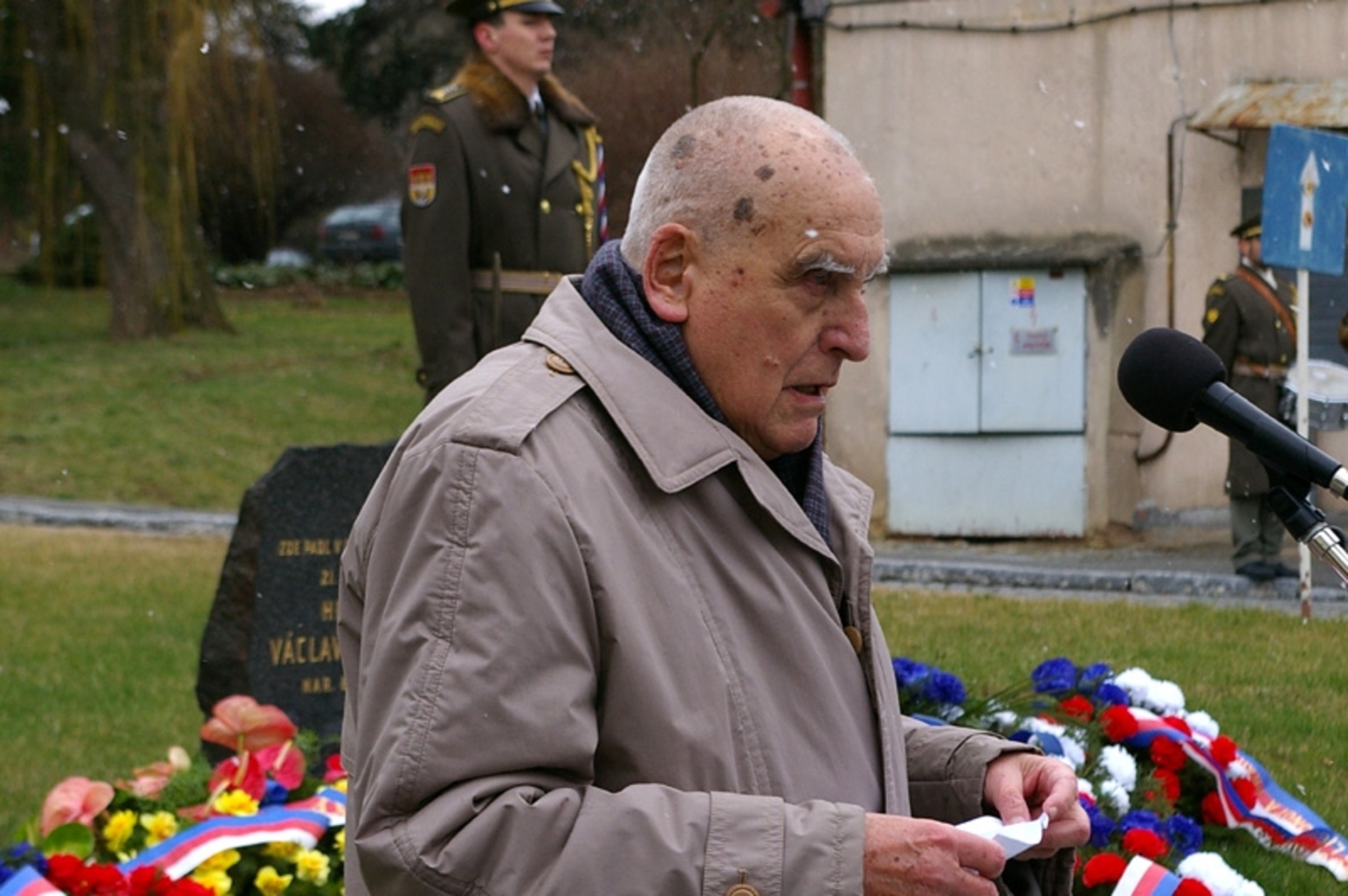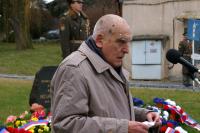The first anti-German demonstration of Scouts in the Protectorate was organised by sixteen-year-old boys.
Václav Lachout was born in 1927 in České Budějovice. His grandfather was imprisoned for seditious activity during the Austro-Hungarian Empire, his father deserted from the army during World War I and helped other people during World War II thanks to a good position in the unions - he was arrested in 1944 and taken to Terezín. Václav Lachout became a Scout in České Budějovice, and he took part in his first anti-German activity with his troop. First of all they, as a symbolic act, they stood guard at the Black Tower, then they sang so loudly as to drown out the German band playing on the square. This event did, to a certain extent, forecast Mr Lachouta’s future fate. The family subsequently moved to Prague, where Václav helped renew the Scouting Movement. He became a member of the 45th Troop. He then decided to leave with several older Scouts-Rovers to join the resistance group Vanguard (Předvoj). A large part of Vanguard was arrested, and so Václav Lachout moved on to the resistance group Fist (Pěst). Mr Lachout mainly carried weapons from South Bohemia and distributed instructions on how to use military equipment. He was active in the Prague Revolt at the end of the war. The fiercest fighting he took part in was with his comrades in arms on Trench Street (Na Příkopě) and by the Estates Theatre (Stavovské divadlo). He was also a member of the delegation that took part in the meeting of the captains and commanders of the Prague Revolt. After the war, he graduated from secondary school and started studies at the Faculty of Law (Charles University). In June 1945 he was accused of spying for the US. He managed to clear himself of this insubstantianted accusation with help from his resistance friends. After the communists accession to power, several of his colleagues from Vanguard got into trouble with the regime, and so paradoxically, Mr Lachout decided to enter the lion’s den, that is the USSR. He studied in Saint Petersburg. After returning to Czechoslovakia he employed himself with civil law and arbitrations. When he became bored with the legal profession, he worked in information technology. He still interests himself very much with the Protectorate period and with communicating with other witnesses.

